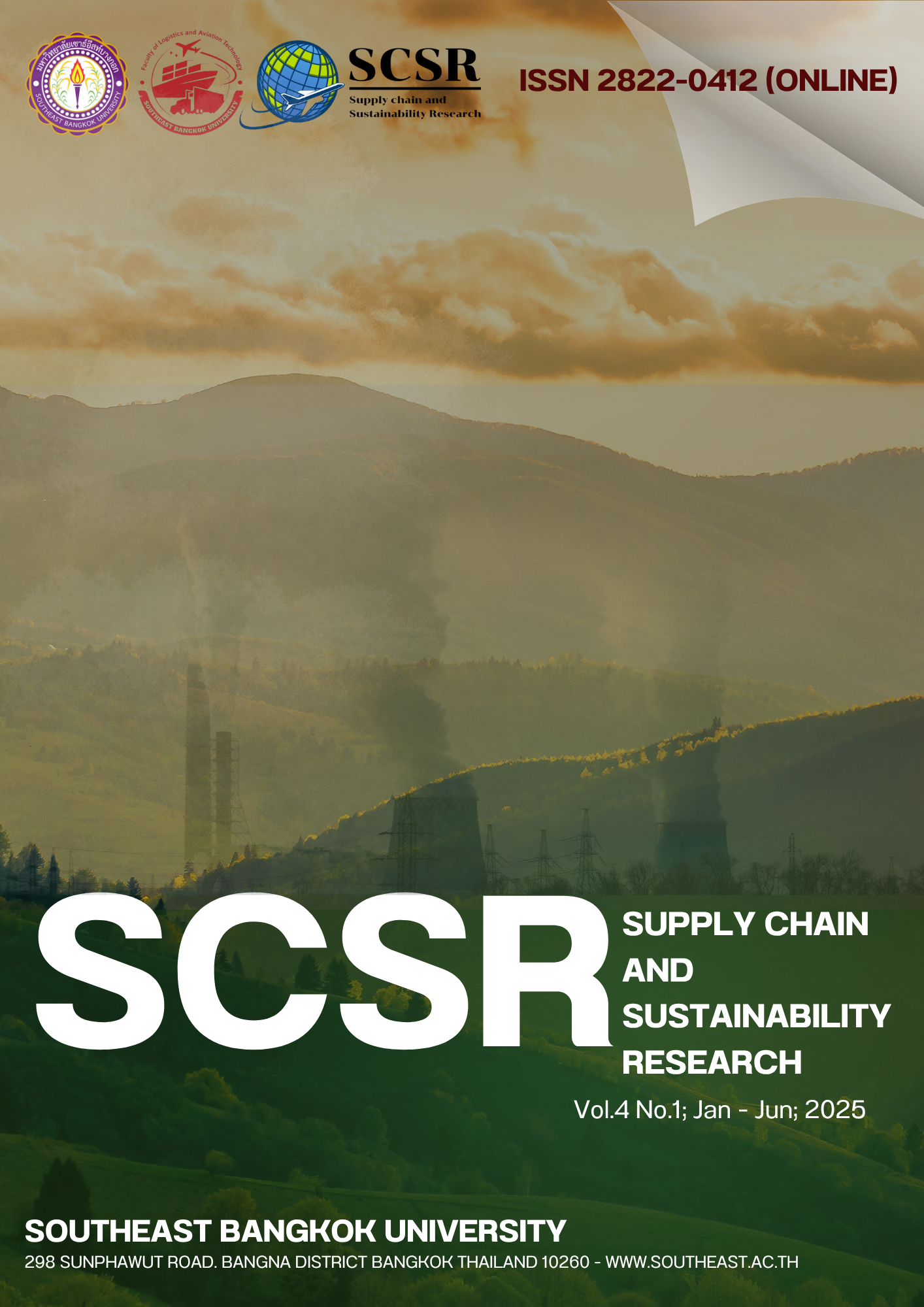Youth Climate Action in Thailand: Participation, Strategies, International Linkages, and Policy Reform
Main Article Content
บทคัดย่อ
This study investigates the pivotal role of Thai youth in climate action, focusing on their participation strategies, international linkages, and contributions to sustainable supply chain management (SSCM), with a comparative analysis of Taiwan’s youth climate initiatives. Utilizing secondary data from policy documents and authoritative reports, the research examines how Thai youth, through movements like Fridays For Future Thailand (organizing 50+ climate strikes since 2019, mobilizing 3,000+ youth), drive sustainable practices in tourism and agriculture supply chains, such as local sourcing that reduces transport emissions (United Nations Economic and Social Commission for Asia and the Pacific [ESCAP], 2024). Yet, limited policy access (only 5% of Thailand’s NDC consultations include youth) restricts their influence (UNFCCC, 2022). Conversely, Taiwan’s Youth Climate Coalition (TWYCC) has trained 15,000 students since 2020, shaping renewable energy policies through curriculum-based advocacy and virtual COP simulations engaging 10,000+ youth annually, despite UNFCCC exclusion (Kuo, 2021; Huang, 2025). Taiwan’s structured model offers scalable strategies for Thailand, while Thailand’s community resilience informs Taiwan’s rural engagement. Grounded in environmental justice (Schlosberg, 2004) and SSCM frameworks (Carter & Rogers, 2008), the study underscores youth-driven innovations aligning with SDGs 8, 12, and 13. Findings advocate for Thailand to adopt Taiwan’s education model to amplify youth policy influence, while Taiwan can leverage Thailand’s grassroots approaches. Policy recommendations include establishing a National Youth Climate Council, funding green startups, and enhancing Thailand’s YOUNGO participation using Taiwan’s digital diplomacy. This research enriches environmental justice and SSCM literature, providing actionable insights for policymakers and businesses to foster youth-led climate-resilient supply chains in Thailand and beyond.
Article Details

อนุญาตภายใต้เงื่อนไข Creative Commons Attribution-NonCommercial-NoDerivatives 4.0 International License.
บทความนี้ได้รับการเผยแพร่ภายใต้สัญญาอนุญาต Creative Commons Attribution-NonCommercial-NoDerivatives 4.0 International (CC BY-NC-ND 4.0) ซึ่งอนุญาตให้ผู้อื่นสามารถแชร์บทความได้โดยให้เครดิตผู้เขียนและห้ามนำไปใช้เพื่อการค้าหรือดัดแปลง หากต้องการใช้งานซ้ำในลักษณะอื่น ๆ หรือการเผยแพร่ซ้ำ จำเป็นต้องได้รับอนุญาตจากวารสาร

